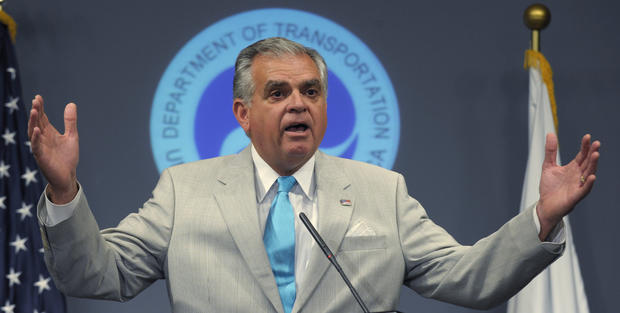Looming partial FAA shutdown could lower airline ticket prices - for now
Transportation Secretary Ray LaHood sought to reassure airline passengers that they won't notice any difference at the airport as a result of the partial shutdown of the Federal Aviation Administration that will commence at midnight tonight because of a political fight on Capitol Hill over the agency's funding.
"They'll still be able to buy a ticket, they'll still be able to fly, air traffic controllers will be in the towers guiding planes in and out safely, the traveling public will not be compromised," LaHood said at a news conference Thursday.
Because the FAA's current funding is set to expire at the end of today and Congress hasn't approved new funding legislation, starting on Saturday, the FAA will have to stop collecting $200 million a week in airline ticket taxes, work on $2.5 billion worth of airport construction projects will be halted, and some 4,000 FAA employees will be furloughed until a new FAA funding bill is passed. Airports, however, will remain open and no flights will be cancelled as a result.
"The system will run," said LaHood. And indeed it will.
The funding fight has to do with a pair of partisan political issues that the vast majority of the flying public knows little about: Republicans want to make it harder for airline workers to unionize and they also want to eliminate $16 million in government subsidies for 13 small rural airports. Democrats do not.
"We have now reached a breaking point," LaHood said of the legislative stalemate. "This is no way to run the best aviation system in the world."
But for now, the only difference that the nearly two million airline passengers who fly in that system everyday are likely to notice is a temporary drop in the total price of their tickets: That tax that the FAA won't be able to collect starting on Saturday comes out to about $61 on a typical domestic ticket.
On the Web:
Department of Transportation statement and fact sheet
LaHood's blog post on the looming partial shutdown
